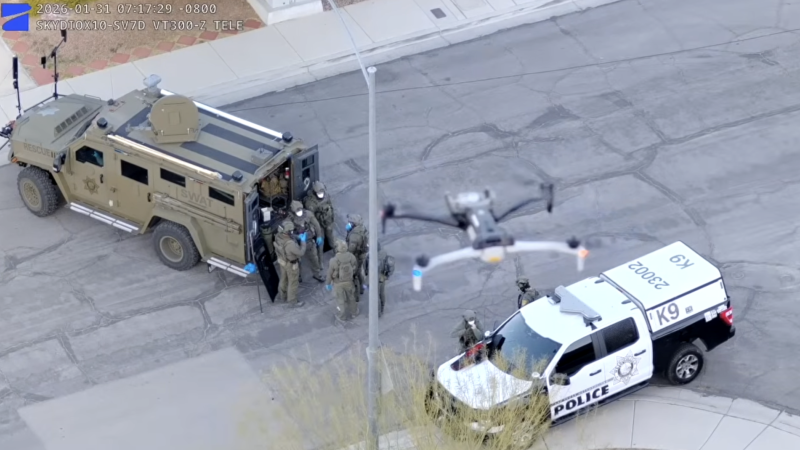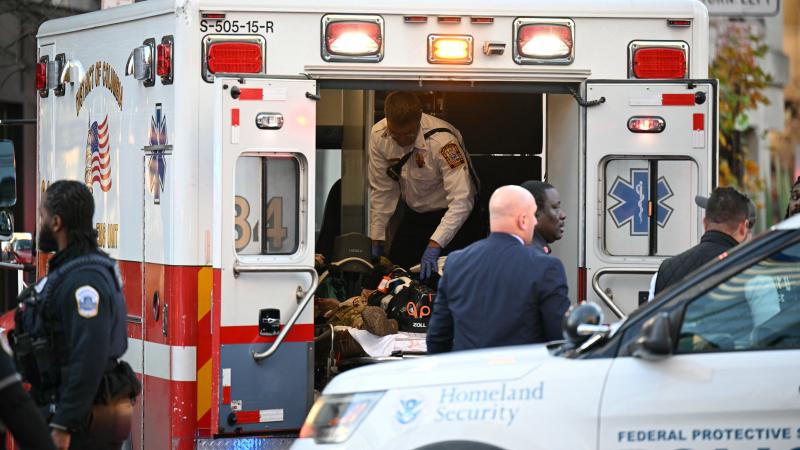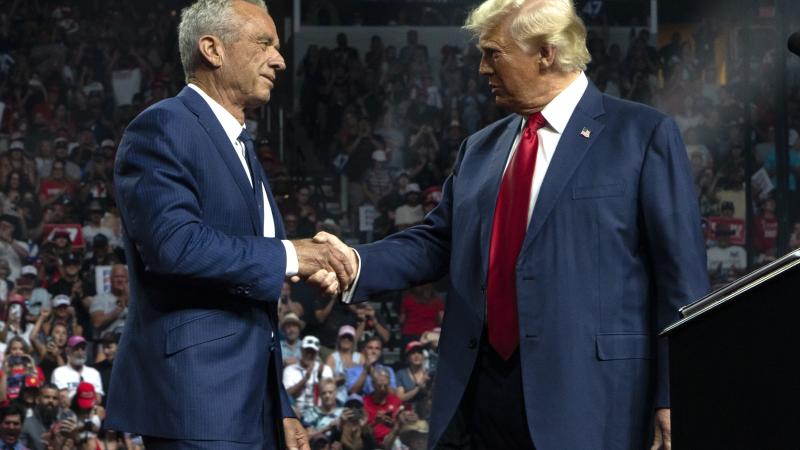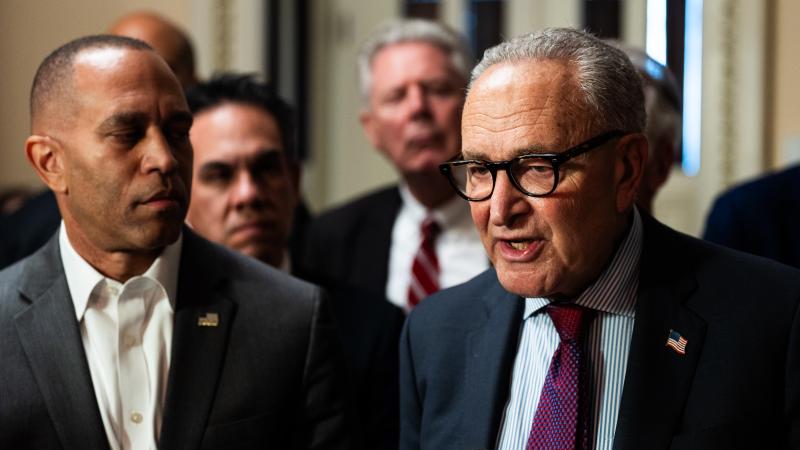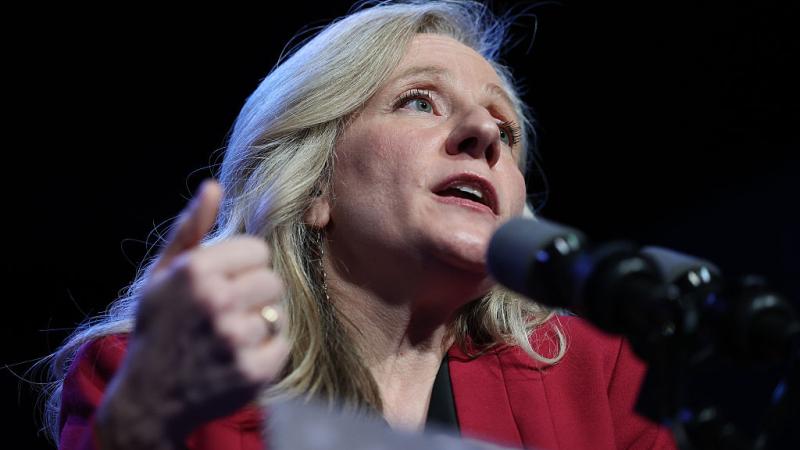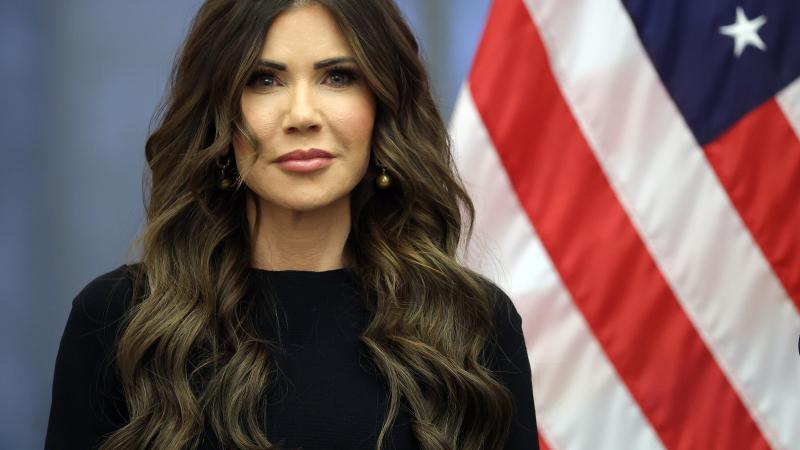COVID vaccination status increasingly determines treatment under American legal system
From custody fights and bail conditions to courthouse access and grooming privileges, vaccination plays outsized role.
Are you vaccinated against COVID-19? The answer to that question may determine how the American legal system treats you, whether an inmate, party or even lawyer.
From custody fights and bail conditions to courthouse access and grooming privileges, vaccination status is playing an outsized role in courts and jails nationwide.
An Illinois judge provoked outrage a month ago by revoking a divorced mother's visitation rights to her 11-year-old son after Rebecca Firlit told him she couldn't get vaccinated because of adverse reactions.
Cook County Judge James Shapiro admitted he has ordered some parents and children in his court to get vaccinated, the Chicago Sun-Times reported. One parent recorded Shapiro asking him and others for their status during virtual hearings on the same day, and shared the video online after learning the judge had revoked visitation for Firlit.
The judge overturned that order a few days ago, after the Sun-Times asked about the video. Firlit's attorney told Fox 32 he credited the reversal to national outrage and the Illinois divorce bar.
U.S. District Judge Jed Rakoff ordered COVID vaccination as a bail condition last month for Elouisa Pimental, a Spanish-speaking immigrant accused of distributing fentanyl. His authority to do so under the Bail Reform Act is "obvious," the judge said, no different than ordering home confinement for an accused drug dealer.
In an exchange tweeted by Inner City Press, Rakoff asked Pimental's public defender Ian Amelkin if his client was vaccinated. Told she wasn't, the judge scoffed: "So she welcomes the chance to infect others?"
Amelkin responded: "Many of our clients are skeptical about the vaccine."
Last month, the Denver-based 10th U.S. Circuit Court of Appeals started barring entry to the courthouse for anyone unvaccinated, including its own law clerks. Unvaccinated lawyers must request "leave to appear via video no later than 30 days before" scheduled oral argument.
"This policy does not seem to have any exceptions for disabilities," including those with severe allergic reactions to COVID vaccines, or for religious objections in possible violation of the federal Religious Freedom Restoration Act, South Texas College of Law professor Josh Blackman wrote.
Because "there is no guarantee leave would be granted" for attorneys requesting a video appearance, their clients could go unrepresented, he said, calling the lack of exemptions "problematic."
The 11th Circuit in Atlanta is requiring a negative COVID test within three days of entry for unvaccinated visitors and weekly testing for unvaccinated employees, according to the Associated Press. It's twice-weekly for unvaccinated employees and contractors at the U.S. District and Bankruptcy Courts for the Southern District of Texas.
This test option is a "fairly decent compromise" by judges, who are acting in their capacity as administrators and "making it up as they go along," Blackman told Just the News. He said the rules are highly variable in federal trial courts.
A better option is to "simply revert back to the status quo" of live video hearings if a party is unvaccinated. Blackman said if a defendant isn't present in the courtroom, the jury could draw an inference he's unvaccinated — impermissible prejudice along the same lines as leaving a defendant shackled.
Remote participation can also put defendants at a disadvantage in situations such as bail hearings, he pointed out. "You want [the judge] to see your face, you want him to see your emotions ... none of that comes through on Zoom." For their part, judges don't like the virtual format in trials because "jurors lose attention" and technical difficulties can interfere.
Lawyer Marty Tankleff, who is representing January 6 defendants, including alleged "Proud Boy" Dominic Pezzola and Edward Jacob Lang, agreed that emotions are stripped out of Zoom. In a courtroom bail hearing, it's also a huge plus that a defendant can turn around and direct the judge to his family in the back, he told Just the News. "How do you do that on Zoom?"
This is one reason "you see the anger, the frustration, the outbursts" by some January 6 defendants in hearings, whose lawyers aren't even in the same room with them, he said. "Even if you're in custody you're standing next to your lawyer," which can calm tensions.
In-person hearings are requested in bail applications for Pezzola and Lang, but they don't elaborate on the importance of face-to-face contact with the judges. Tankleff said the court in Pezzola's case agreed with their request to reschedule a virtual Sept. 2 hearing to an in-person Sept. 14 hearing.
Both January 6 defendants and dozens more are housed in D.C. jail, subject to a policy that further restricts access to barbering and cosmetology services for unvaccinated inmates.
While inmates were previously allowed to get a haircut or manicure "prior to a court appearance," starting in June the jail removed the privilege except for those with "upcoming jury trials." Those are unlikely to happen "before January or even next spring" because of the sheer amount of evidence and technical problems, The Washington Post reported in July.
The department dangled one exception for inmates not facing juries soon: those "able to demonstrate they have been fully vaccinated for COVID-19."
It's not clear how the change was communicated to inmates and their lawyers, however. Tankleff and cocounsel Steven Metcalf told Just the News they weren't aware the vaccine exemption was a written policy but heard from their clients "they haven't been able to obtain a hair cut or shave in months."
It also surprised Washington state Republican congressional candidate Jerrod Sessler, who told Just the News he came to D.C. jail to make an "awareness video" last month and interviewed a January 6 defendant "who just happened to be released at the moment when we were filming."
Karl Dresch told Sessler about his stay in the jail, from the difficulty meeting with lawyers to the ban on grooming services for unvaccinated inmates like him. "Sometimes it feels like judges are just making up their own laws to keep people in," Dresch said.
The D.C. Department of Corrections has not answered repeated queries from Just the News on how the change was communicated to inmates and lawyers, the public health rationale for exempting inmates with jury trials but not those with natural immunity from prior infection, and whether it conditions other services on vaccinations.
The Los Angeles County Jail System, the largest in the country, pressured inmates this spring to get vaccinated by saying it would help them get transferred faster to California state prison, where they have family visitation rights and vocational programs that can shorten their sentences, Kaiser Health News reported.
"I think a lot depends on particular circumstances, and in particular on the particular statutory rules governing the relevant court," UCLA law professor Eugene Volokh told Just the News regarding vaccine rules in the legal system.
The Supreme Court's 1905 Jacobson precedent upholding vaccine mandates "likely therefore could require vaccination as a condition of access to a wide range of services," and correctional facilities typically have "extremely broad authority" over inmates, but both are subject to state law, he said.
The Facts Inside Our Reporter's Notebook
Documents
Videos
Links
- revoking a divorced mother's visitation rights
- Chicago Sun-Times
- Fox 32
- ordered COVID vaccination
- tweeted
- barring entry to the courthouse
- wrote
- Associated Press
- January 6 defendants
- Dominic Pezzola
- starting in June
- The Washington Post
- awareness video
- Kaiser Health News


